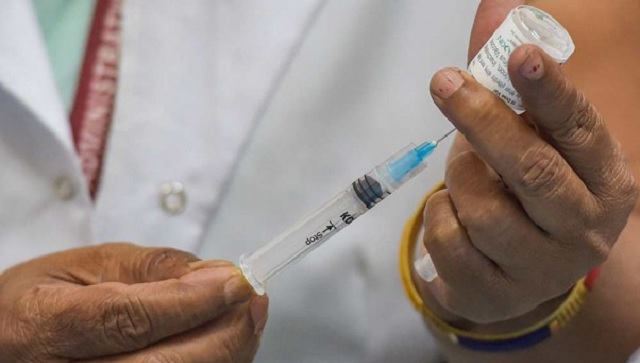As per the 2011 census, there are 4.87 lakh transgender individuals in India. But according to recent government data, only 25,468 (5.22 percent) individuals have been vaccinated. Several reasons have together made it harder for India’s transgender community to get vaccinated. As Amrita Sarkar, advisor, transgender wellbeing and advocacy at India HIV/AIDS Alliance says , “Most transgender persons are severely hit by the pandemic. They have literally no money left for survival and on top of that, now they have no avenue to get vaccinated.” Firstly, there’s vaccine hesitancy among the trans community, because of historic trauma when faced with the Indian healthcare system, which needs to be addressed through spreading more awareness. While many are denied treatment, several others are faced with hostility, lack of facilities like washrooms, and more. Added to these challenges is the problem that many individuals are already suffering from diseases like HIV, and complications from sex reassignment surgery and hormone intake, making them more vulnerable to COVID-19. Lack of transgender representation at vaccine trials adds to the uncertainty about the vaccines and discourages many from getting jabs. Besides being at higher risk of infection, the community is also more vulnerable because of their socio-economic statuses, the stigma surrounding them in society, and the discrimination and exclusion they face as a result of this stigma. Several individuals are not comfortable visiting the usual vaccination centres because of social ostracisation. As one member spoke of her friend’s experience, “My friend went and she was driven away by the people queuing outside who told her she can’t get vaccinated with them. I want to go with an appointment so no one can say that but with no smartphone that is very difficult.” There’s also lack of proper information, resources, and support for the community to turn to. As one member of the community said , “Registration through the app is impossible as many of us do not have smart phones. We are not all literate and don’t know how to use internet browsers effectively. It is definitely creating a hurdle.” Added to this is the insistence of providing photo ID when registering, and another important hurdle is the lack of proper documentation. Some of the members of the community do not have documents with date of birth, residential proof, and gender identity, like the Aadhaar card and other identity documents. As a 2017 study found, in Uttar Pradesh and Delhi, only 16.6 percent of trans persons have Aadhaar cards, 15.4 percent have voter cards, 2.1 percent have a driving licence, and 1.6 percent have PAN cards in their own name. While long-term goals like increasing literacy and improving the community’s socio-economic status are vital, more short term strategies that need to be implemented include spreading awareness and organising community friendly vaccination drives, like the drive organised by Mumbai’s SL Raheja Hospital and another at Delhi’s Sultanpuri.
From lack of documentation to vaccine hesitancy, India’s trans community's struggle to access COVID-19 vaccines, explained
FP Staff
• July 16, 2021, 20:48:21 IST
Several reasons have together made it harder for India’s transgender community to get vaccinated.
Advertisement
)
End of Article